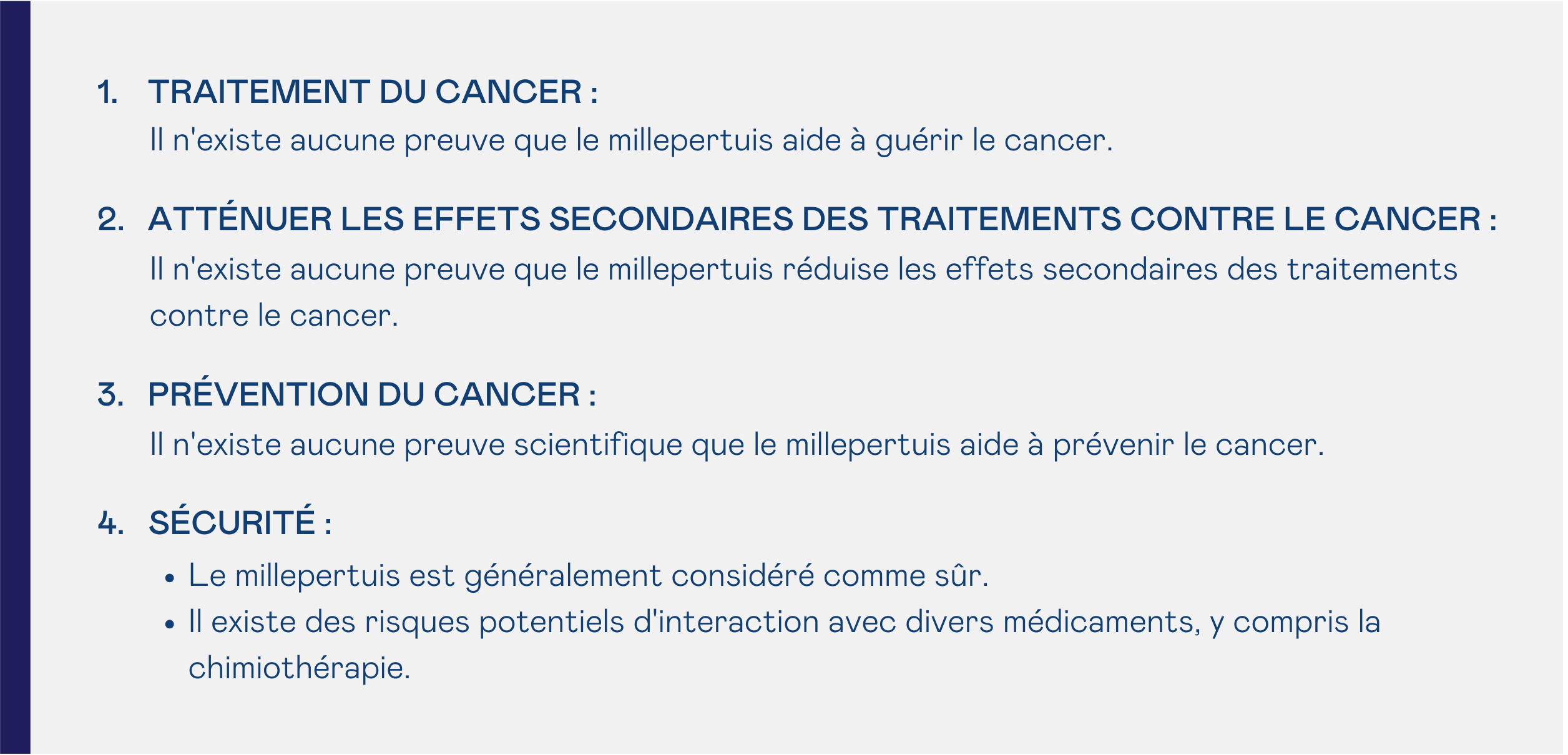Menu


Le millepertuis (Hypericum perforatum) est une plante d’origine européenne de la famille des Hypéricacées.
Le millepertuis est l’une des plantes médicinales les plus étudiées, avec l’hyperforine et l’hypericine comme composants actifs au cœur de la majorité des recherches (2, 3).
Il s’agit d’une herbe qui est utilisée comme remède naturel depuis de nombreux siècles.
Il n’y a pas beaucoup d’études sur l’utilisation du millepertuis dans le traitement du cancer.
À ce jour, il n’existe aucune étude bien conçue portant sur l’application du millepertuis dans le traitement du cancer. De petites études pilotes ont montré un effet positif d’une pommade contenant du millepertuis dans le traitement du cancer de la peau (7) et une réduction de la tumeur du gliome (tumeur cérébrale) (8). Ce type de recherche demande à être confirmé.
À ce jour, aucune étude bien conçue n’a examiné l’application du millepertuis sur les effets secondaires des traitements anticancéreux. Une petite étude pilote a montré un effet positif d’une pommade contenant du millepertuis dans le traitement de l‘inflammation cutanée après une radiothérapie (9). Le millepertuis a également été étudié pour le traitement des effets secondaires du cancer du sein, avec des effets potentiellement bénéfiques (10, 11).
Ce type de résultats demande à être confirmé par d’autres recherches.
Il y a peu d’études sur l’utilisation du millepertuis dans la prévention du cancer. Une revue systématique de la littérature n’a trouvé aucune preuve de l’efficacité du millepertuis pour prévenir le cancer du sein chez les femmes ménopausées (10, 11).
Le millepertuis est largement considéré comme sûr et entraîne généralement peu d’effets secondaires, à l’exception de rares effets secondaires graves.
Effets secondaires
Les effets secondaires suivants sont les plus fréquents :
Le millepertuis est déconseillé en cas de :
Les compléments alimentaires contenant du millepertuis peuvent limiter l’efficacité de la chimiothérapie et des analgésiques (antidouleurs) (12-19).
La prise de millepertuis en association avec des antidépresseurs classiques peut entraîner un syndrome sérotoninergique (1, 20).
Les caractéristiques de ce syndrome sont les suivantes :
Le millepertuis peut affecter l’action de certains médicaments utilisés pendant une opération chirurgicale. L’utilisation du millepertuis est déconseillée au moins deux semaines avant une intervention (21, 22).
D’autres interactions ont été décrites avec :

Des professionnels pour répondre à toutes vos questions sur le cancer
